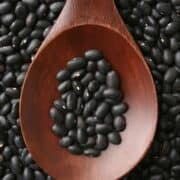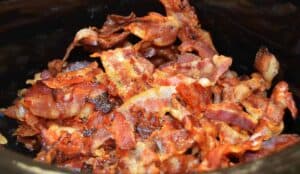
The Keto diet is very popular, but it also comes with a lot of criticism. Health experts, doctors, and diet specialists come from all different opinions when it comes to the Keto diet and other low-carb approaches to nutrition. Some believe that it is dangerous, some say that it is a healthy method to lose weight and address chronic illness and others say that it works on a short-term basis.
However, there are also hundreds of thousands of individuals who have found success with the Keto diet. They can speak from personal experience and know that the diet works and it is an effective means of not only losing weight but also keeping weight off and improving overall health and longevity. There are hundreds of thousands of testimonials that tout the benefits of the low-carb lifestyle. Let's talk through Keto diet criticism.
Too Much Fat
There are many typical criticisms of the Keto diet. One of the first is that the diet is too high in fat. The butter, oils, and fatty meats that are relied upon in ketogenic diet plans are a far cry from the low-fat diet fad that recently swept the nation.
Unfortunately, fat has been vilified in recent nutrition recommendations put out by government bodies due to bad data and skewed agendas. There is a ton of new information available on this topic, uncovering the bad research and science that is responsible for this farce. Zoë Harcombe has done a great job of distilling this information in her work.
Unfortunately, there were a lot of false conclusions drawn due to data manipulation and industry interference early on in nutrition research and we've learned a lot since then about fat and cholesterol. Dave Feldman is another fantastic data-focused resource on the role of cholesterol in the body.
For many people, despite this new information, the low-fat mindset has prevailed and they cannot fathom prioritizing fatty cuts of meat and eating real butter or cream with their meals. It seems like too much fat at first glance. However, those that pay close attention to nutrient-density and clean ingredients know that the diet focuses on good fats. Real fat from whole food sources is emphasized. The proper use of these fats and oils is important to brain function, hormonal balance, and mood management. Fat is essential, as is protein, but there are no essential carbohydrates because our body actually makes the glucose we need.
No Focus on Exercise
Another popular keto criticism is that it focuses too much on food and not enough on exercise. This is an unfair claim because most advocates of a ketogenic or low-carb approach to nutrition also advocate a need for exercise.
There is a lot of attention paid to food choices because they are an integral part of the program, and they are different foods than what people are normally used to eating in the standard American diet due to the incredible amount of misinformation around nutrition. However, this does not mean that exercise is not an integral part of a well-balanced ketogenic program. Aerobic and anaerobic exercise regimens are encouraged, and both will greatly increase your weight loss and health recovery efforts.
Keto is Not Sustainable
Many keto critics feel that the diet is hard to keep up in the long-term. Critics in this category will admit that keto is effective in short-term weight loss efforts and health recovery, but point out that the lifestyle is hard to maintain over time.
However, people, who have had long-term success with keto claim it is one of the easiest diets to follow for significant periods of time. The keto plan has rich food that is forbidden on other programs, and it has appetite-suppressing effects. When you combine this with the quick weight loss, a motivating factor for many people, keto is easy to stick to long term.
Not to mention, for folks who suffer from food addiction, binge eating disorder, and other disordered eating patterns, the longer they eat keto, the healthier their relationship with food and themselves become. This is a huge motivator to stay on plan for the long haul.
There Are Side Effects
The initial side effects of the transition period from carbohydrate-fueled metabolism to a fat-fueled metabolism, like constipation and bad breath, have also been a topic that keto critics are quick to point out. However, these side effects are not as common as critics make them out to be. If they do occur, the side effects normally only last through the first phase of the diet. Additionally, drinking enough water will normally take care of both problems rather quickly.
Initial symptoms, termed the 'keto flu', are short lived and harmless.
There are pros and cons to many diets. If you don’t particularly enjoy preparing and eating meat, then keto is probably not for you. But if you are considering keto, make sure to look beyond the common criticisms for the truth about the diet. There's a ton of new literature to support this approach alongside the hundreds of thousands of personal stories of healing.


















Jeanette says
I know I'm a little late to the party here but people have this misconception about Atkins that it's all butter and bacon. It's not even ALL meat ALL the time. The Atkins website has some fantastic recipes for vegetables, after all.
Americans are a people of extremes. They hear fat is bad for you so they banish ALL fat from their diets, even healthy fats the body requires or have other beneficial effects (like vitamin absorption). Most low fat foods taste like crap. The ones that don't are loaded with sugar or other carbs and artificial crap to make them taste less like the crap they really are.